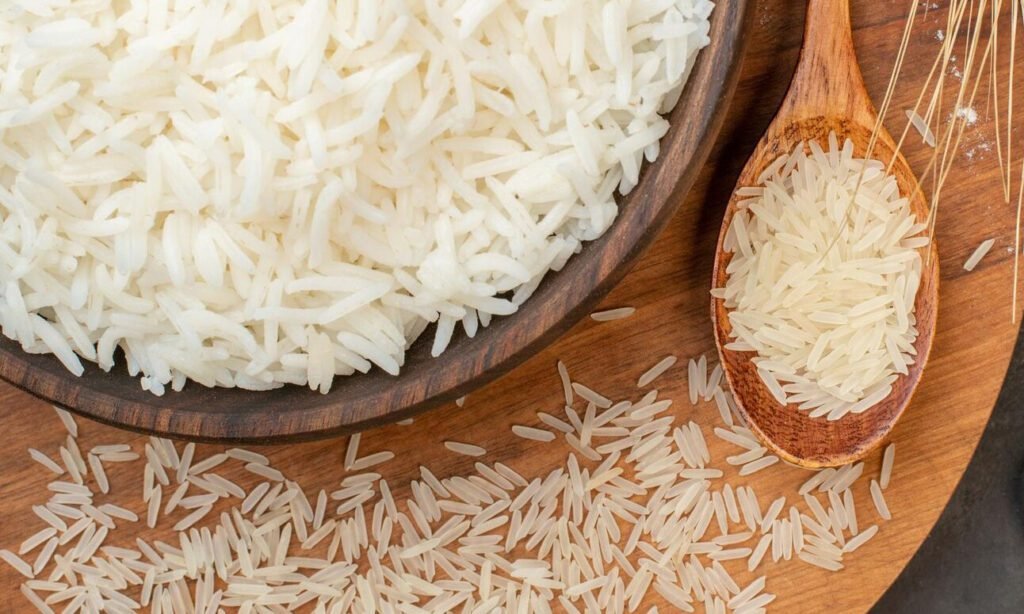
Indian Basmati rice, renowned worldwide for its exquisite aroma and delicate flavor, is a cherished gem of Indian cuisine. Grown in the fertile lands of northern Indian states, Basmati rice is celebrated for its long, slender grains that cook up fluffy and separate, in addition to its fragrant aroma and superior taste. Its rich history and exceptional quality have made it a staple in kitchens around the globe.
From the fertile lands of Punjab and Haryana to every region in northern India, each contributes its own distinctive touch to Basmati cultivation. Special varieties like 1121 Basmati and 1509 Basmati are nurtured with meticulous care, embodying traditions passed down through generations.
Click here for List of Major Non-Basmati Rice varieties exporting from India
Click here for latest mandi rice prices | Ex-mill, FOB
Basmati rice export from India holds a prominent position in the country’s rice exports, with key importing nations including the UAE, Saudi Arabia, Iran, Qatar, and others in the Middle East, as well as the United States. A substantial quantity of Basmati rice is exported worldwide, particularly for the preparation of the revered dish, biryani.
Click here for India’s Basmati rice Export Data
Here is the list of major Basmati Rice Varieties Cultivating in India
| Rice Variety | Cultivating States | Average Length (mm) |
|---|---|---|
| 1121 Basmati | Punjab, Haryana | 8.40 mm |
| 1509 Basmati | Punjab, Haryana | 8.40 mm |
| 1718 Basmati | Punjab, Haryana | 8.40 mm |
| 1401 Basmati | Punjab, Haryana | 7.70 mm |
| PR 11/14 | Punjab, Haryana, Uttar Pradesh | 6.90 mm |
| Pusa Basmati | Punjab, Haryana | 7.45 mm |
| Sugandha Non Basmati | Punjab, Haryana | 7.90 mm |
| Sharbati Non Basmati | Punjab, Haryana | 7.10 mm |
Basmati rice stands out for its exceptional qualities. Unlike other varieties, Basmati grains size from 7.35mm to 8.40 mm in length, offering a fluffy texture, captivating aroma, and elegant appearance. Prepare yourself for an elevated rice experience! Additionally, different milling methods such as raw, steam, boiled, and Sella produce rice with unique textures and flavors. Each type excels in different dishes, providing a variety of options for your culinary adventures.
Despite the use of modern farming methods and scientific progress, the Basmati rice industry faces challenges like climate change and market shifts. This emphasizes the importance of adopting sustainable farming practices and flexible strategies.


